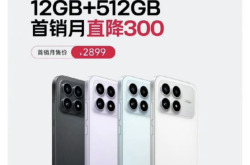Unprecedented! Tencent, which 'doesn't love hardware', takes the lead in this hardware category!
![]() 11/18 2024
11/18 2024
![]() 616
616
Is Huawei and Xiaomi really not leaving any room for survival for established manufacturers?
According to data from the "China Smart TV Box Online Retail Market Monthly Tracker" released by Runto Technology, retail sales of domestic smart TV boxes in the third quarter of this year amounted to 312,000 units, a year-on-year decrease of 5.5%.
Among them, Tencent ranked first with a 20.1% market share, followed by Tmall Magic Box with a 17.6% share. As the dominant force in the internet industry, it is reasonable for Tencent and Tmall Magic Box to rank top two in smart TV box sales. Especially for Tencent, which not only owns Tencent Video, one of the three major long-form video platforms in China, but also thrives in cloud gaming. A box costing over a hundred yuan can provide rich video resources from Tencent Video and serve as a cloud gaming console, making its competitiveness self-evident.
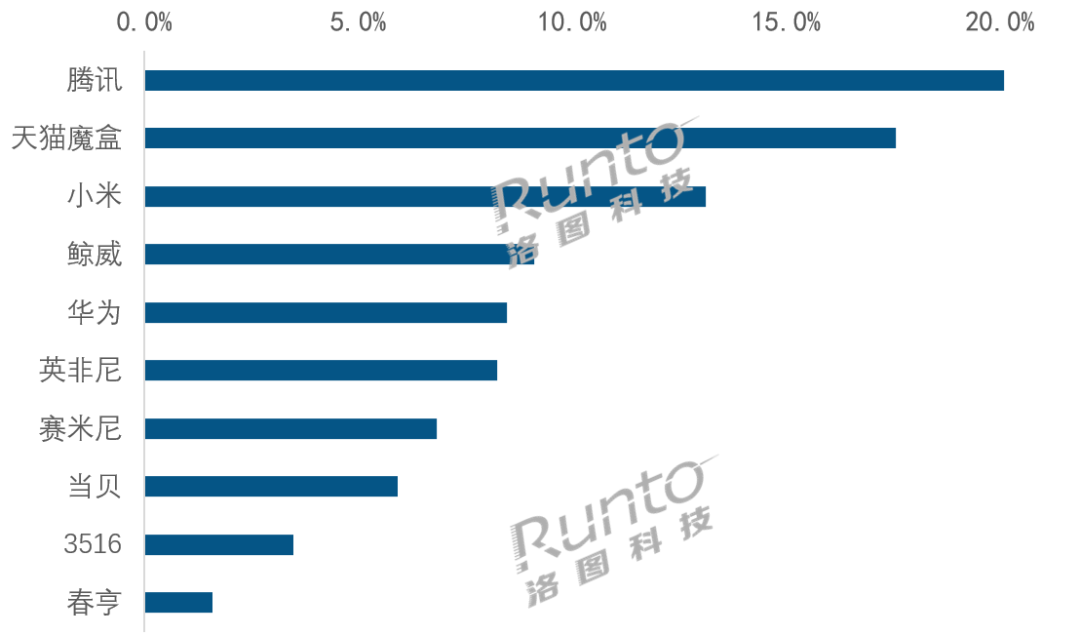
(Image source: Runto Technology)
Xiaomi and Huawei, which have repeatedly ranked among the top five in smart home device sales, have once again made it to the list, with Xiaomi in third place and Huawei in fifth. Although the smart TV box market is not huge, over the years, many strong players have emerged, such as Dangbei and InfiniTV, along with industry giants like China Mobile and Skyworth. How did Xiaomi and Huawei manage to overcome numerous strong competitors and enter the top five?
Dimensionality reduction strike by hardware giants
Similar to all smart home industries, mobile phone brands like Xiaomi and Huawei have entered the market with advantages focusing on brand influence and smart ecosystems.
The smart TV box market is not large enough to cultivate industry giants independently. Therefore, whether it's internet giants like Tencent and Alibaba or mobile phone industry giants like Xiaomi and Huawei, their popularity after entering the market has an absolute advantage over traditional brands. In the internet era, various marketing advertisements spread more easily, giving small brands opportunities to rise, but also leading to increased concentration at the top of the industry.
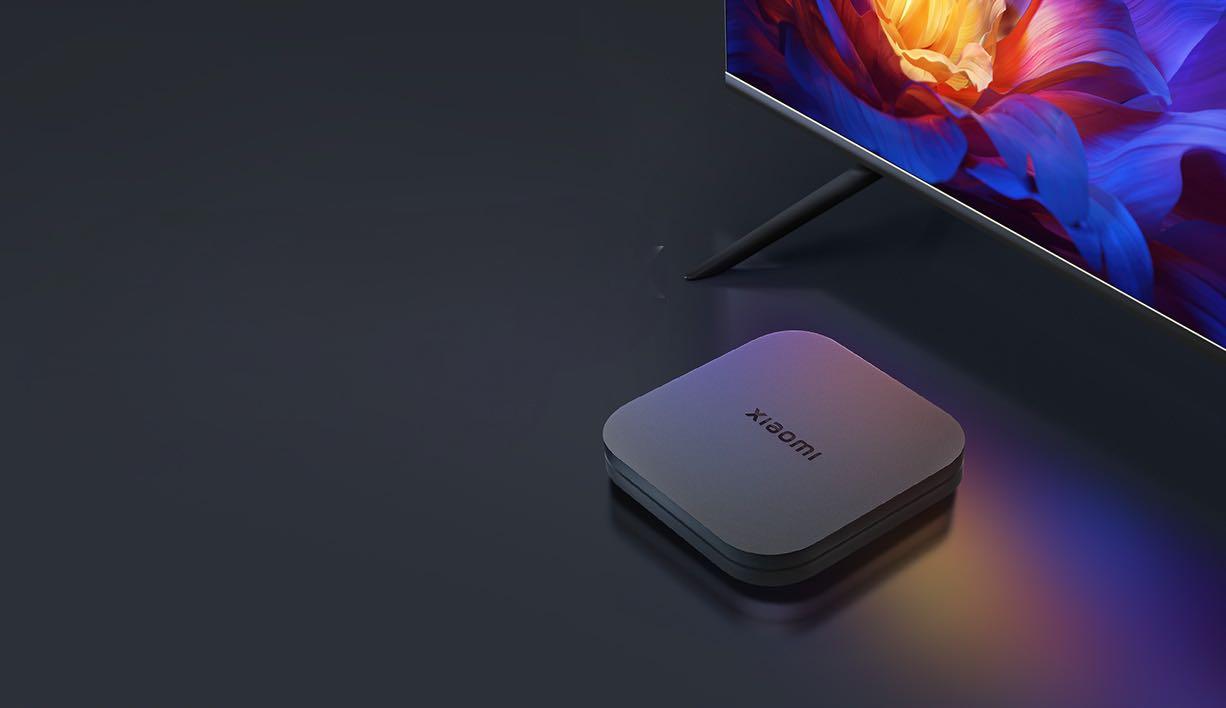
(Image source: Xiaomi)
After mobile phone industry giants like Xiaomi and Huawei entered the smart home industry, their sales rankings have soared, achieving good results in multiple areas such as smart door locks and surveillance cameras. Recently, Xiaomi has also been rumored to be entering the NAS industry, while Huawei's Global Embodied AI Industry Innovation Center has officially commenced operations, accelerating its layout in the robotics industry.
Undoubtedly, neither Xiaomi nor Huawei is content with just making mobile phones; they aim to involve themselves in all aspects of the smart ecosystem and grow into global top leaders. Smart TV boxes are just an insignificant part of the pie for companies like Huawei, Xiaomi, Tencent, and Alibaba.
Traditional brands' smart TV boxes are limited to TV functions, with a relatively scarce software ecosystem and not many usable apps. Xiaomi, Huawei, and other companies have a relatively richer application ecosystem for their related devices. Additionally, Huawei's TV boxes already use the HarmonyOS system, and Xiaomi is also developing the Pengpai OS. HarmonyOS's characteristic of one-time development and multi-end deployment helps Huawei further enrich the application ecosystem of its smart TV boxes.
A slight effort from brands like Huawei, Xiaomi, Tencent, and Alibaba constitutes a dimensionality reduction strike on traditional smart TV box brands, as their influences are not on the same level.
However, even if these internet and mobile phone industry giants perform well, future sales of smart TV boxes are likely to decline. It's not because their products lack competitiveness or because of powerful competitors, but because the entire smart TV box industry is on its way out.
Data shows that online sales of TV boxes in China fell by 5.5% year-on-year in the third quarter, with quarterly sales of just over 312,000 units, indicating a worrying situation.
In today's internet culture, touch-operated mobile phones and tablets can already meet our audiovisual entertainment needs in most scenarios. In a sense, TVs are more like decorations. People buy them not for use but as ornaments for living rooms or bedrooms.
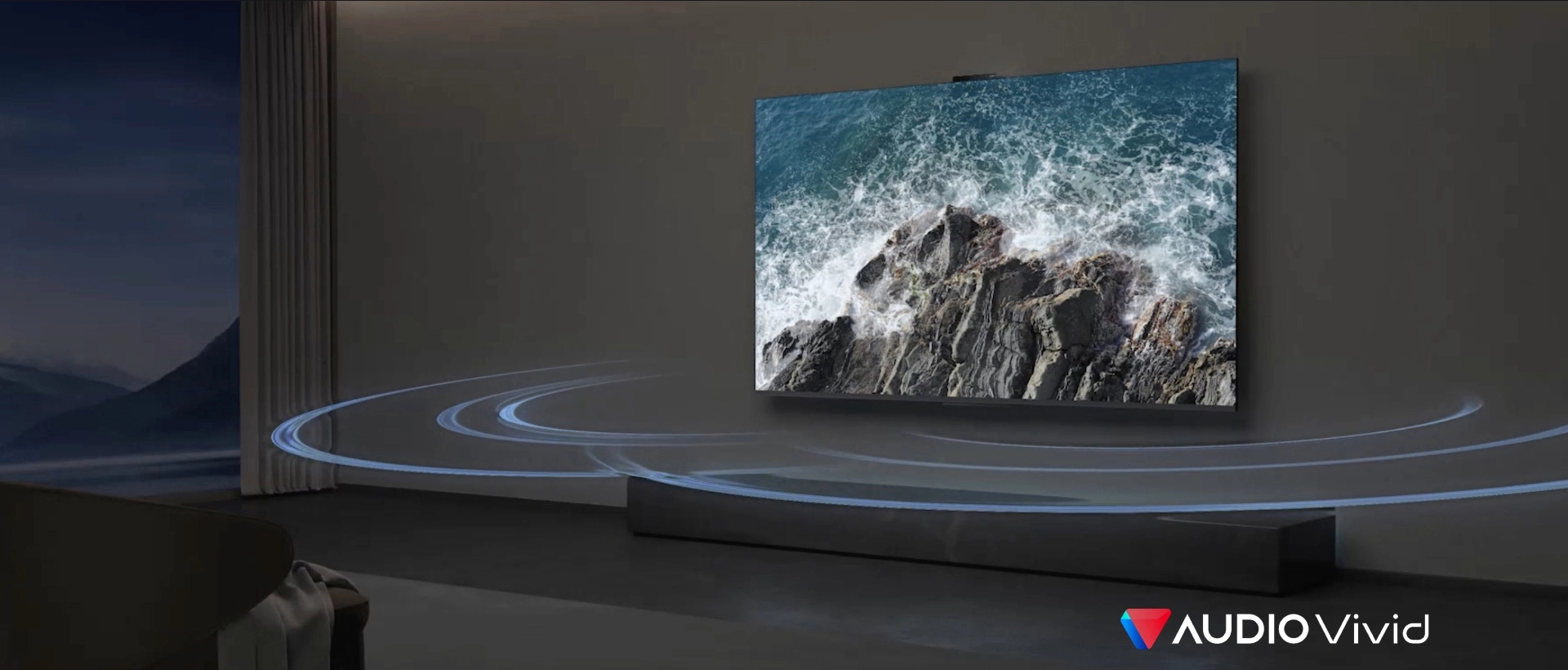
(Image source: Huawei)
According to the "Monthly Tracker of China TV Market Brand Shipments" released by Runto Technology, domestic TV brand shipments totaled 8.815 million units in the third quarter of this year, a year-on-year decrease of 6.6%. With TV sales declining, let alone smart TV boxes.
Moreover, the primary use of smart TV boxes is in non-smart TVs or older smart TVs with poor performance. There are many options for new TVs, and both Huawei and Xiaomi offer excellent smart TV options, allowing users to fully experience the systems and software ecosystems developed by Huawei and Xiaomi for TVs.
How to save the declining TV box industry is a difficult problem facing all relevant enterprises, including Xiaomi and Huawei.
Self-rescue relies on product innovation
A simple TV box has little value in the internet era. Combining it with other devices to enrich its functions and ecosystem may revitalize smart TV boxes.
In recent years, a type of product called "BFF machines" has become popular, satisfying users' needs for convenient touch operation and large-screen display. However, their high prices deter many consumers, and the screens are not large enough for a satisfying viewing experience. Combining the functions of BFF machines with TV boxes, turning TV boxes into wireless connection devices, and installing a screen for touch operation could allow users to control the TV from a distance.
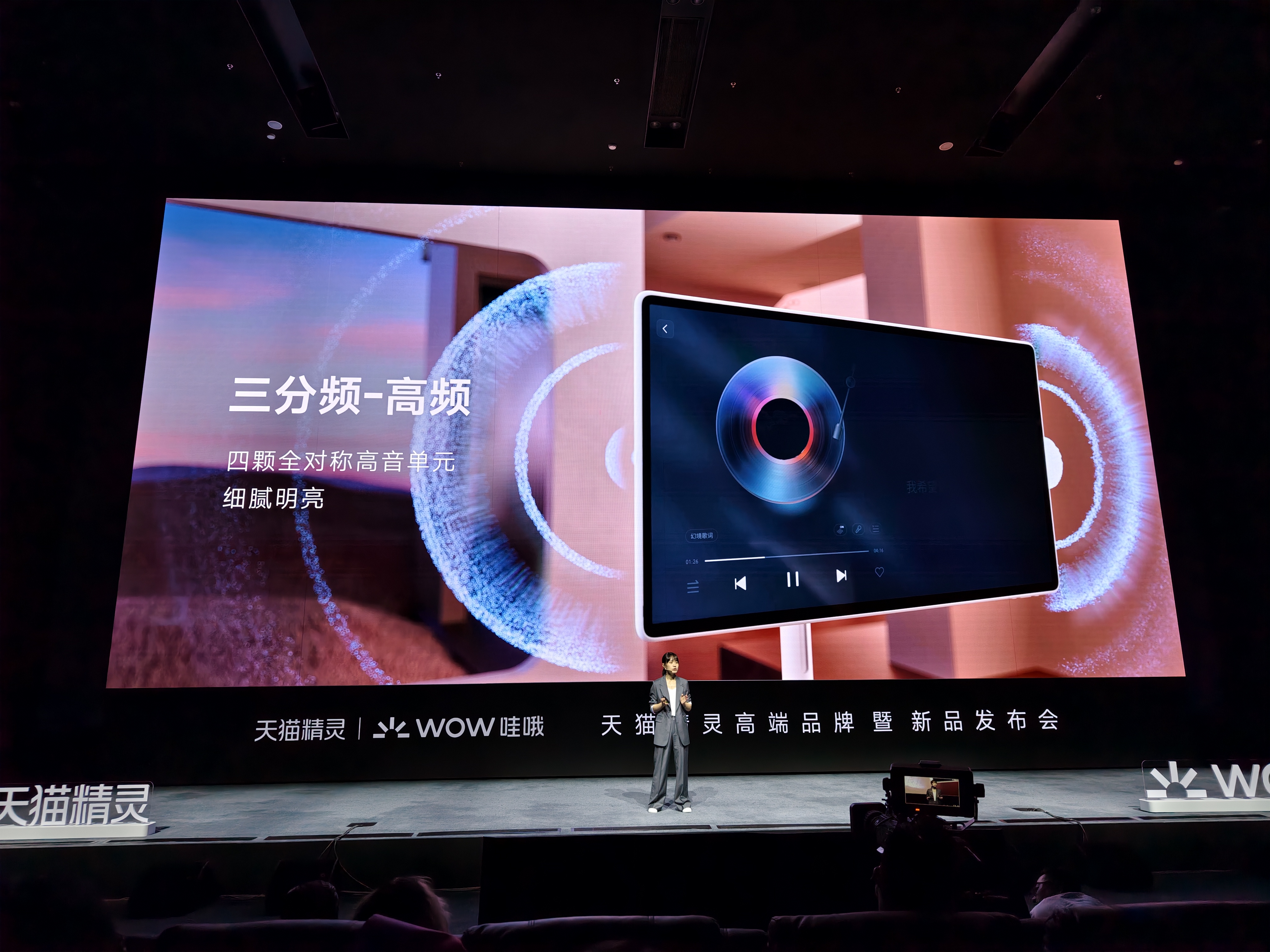
(Image source: Lei Technology production)
This solution not only addresses the inconvenience of TV operation but also enhances the viewing experience while minimizing costs. In fact, some companies developed touch-operable TVs long ago, intending to tap into the value of TVs. However, due to the inconvenience of past touch operations, they failed to gain widespread consumer acceptance. Touch-operable wireless smart TV boxes may become a compromise solution, unleashing the potential of such products.
Furthermore, many smart TVs already perform functions similar to smart speakers, allowing voice control of smart devices in the home. Smart TV boxes can also incorporate these functions, and their smaller size makes them easy to carry and place anywhere. It is not technically difficult to implement these functions, and giants like Xiaomi and Huawei can easily achieve them. The only cost is a potential increase in product and selling prices. However, considering the enhanced viewing experience, Lei Technology believes it's worth the extra cost.
Moreover, a smart TV box that can serve as the control center for smart home devices and a touch-operable TV box can not only enhance its own practical value but also potentially revitalize the smart TV market. Many users currently find it more convenient to watch videos and browse short videos on mobile phones and tablets than on TVs. However, if TVs become remotely touch-operable, significantly improving convenience, the enhanced experience provided by their larger screens is unmatched by mobile phones and tablets.
Smart devices need continuous upgrades and updates to meet consumers' new needs. Enriching the functions of smart TV boxes may become the future development direction of the industry.
Even if the 'small meat' (small profits) is gone, do the big factories care?
Relying on their brand and software ecosystem advantages, companies like Xiaomi, Huawei, Tencent, and Alibaba have defeated traditional enterprises and ranked among the top five in smart TV box sales. However, the decline in smart TV box sales is evident, and without timely change, they may be abandoned by consumers in the future.
Enriching the functions of smart TV boxes may be an effective solution to change their fate and revitalize them. The question is, will the leading companies care? With annual online sales of perhaps just over a million units and product prices generally ranging from 100 to 500 yuan, the TV box market is tiny for leading companies and may not receive much attention. Brands like Xiaomi and Huawei may prefer to focus on the smart TV sector.

(Image source: Xiaomi)
Additionally, mobile phones and tablets can also cast their screens to TVs. Although there may not be targeted optimizations, the experience may not be perfect, but it is usable. Installing some apps on TVs via USB drives can also cast mobile phone screens to TVs, but it may require some effort and may not be suitable for novice users.
Due to the small market for TV boxes, companies like Xiaomi, Huawei, Tencent, and Alibaba are unlikely to launch the new products envisioned by Lei Technology. Lei Technology believes that there will surely be smart TV box manufacturers exploring new designs and functions. Even though smart TVs are becoming increasingly functional and their ecosystems are growing richer, smart TV boxes still have untapped potential.
Industry development will follow a spiral upward trend. At this stage, smart TV box manufacturers lack the motivation and determination to improve, but a declining market will force them to change. The market will drive industry change, and consumers' wallets will ultimately decide the outcome.
Source: Lei Technology


